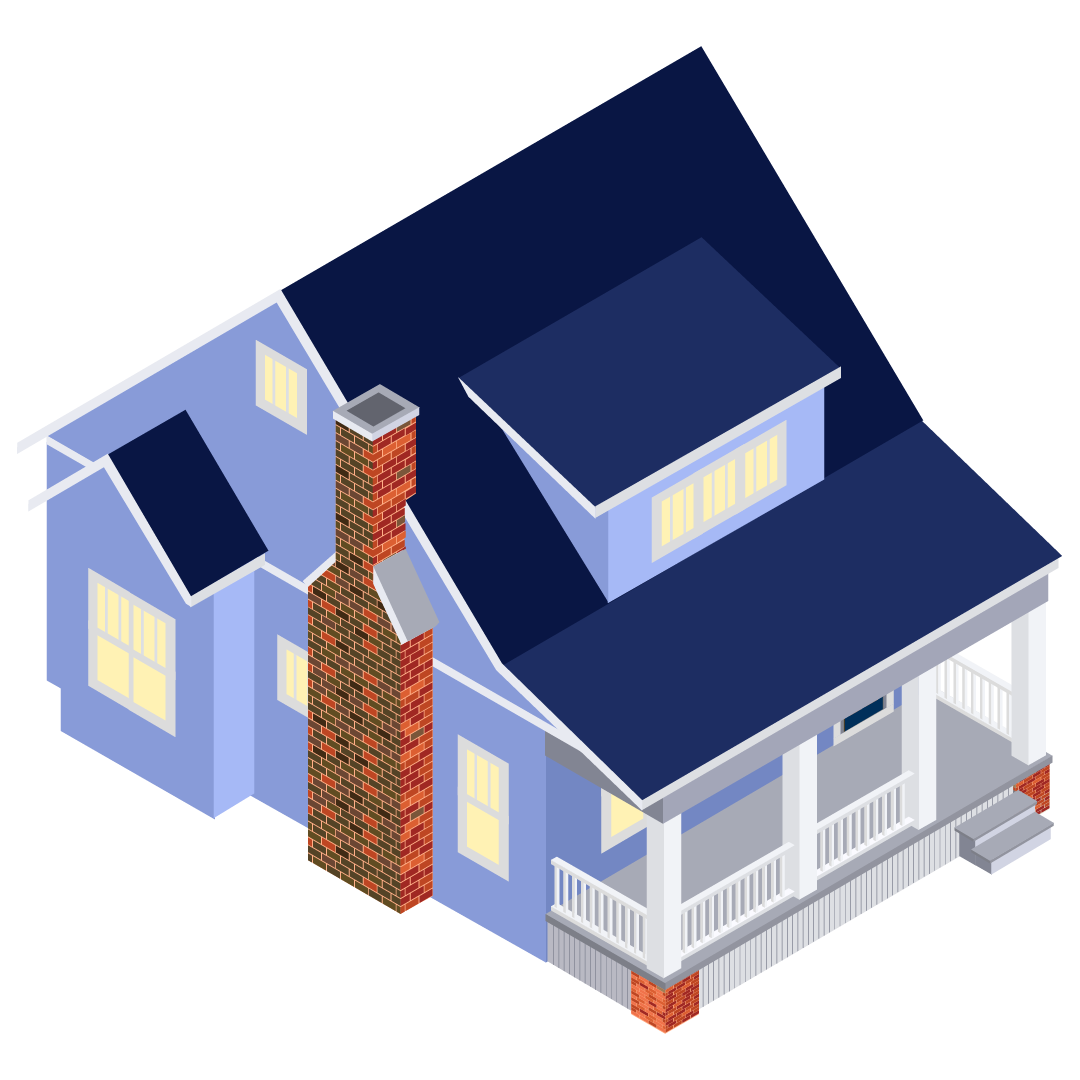You know the home you want.
We make it happen.
Whether you are looking to purchase a home or upgrade the one you have, it all starts with choosing the right lender and the right home loan.
Welcome to one of the most widely used loan types, FHA loans. FHA loans offer flexible down payment and credit requirements, increasing access to homeownership for a wider variety of borrowers.


You may qualify with as little as 3.5% down.
Minimum credit score of 500-580.
Buy, build, repair, renovate, or refinance.
FHA loans allow borrowers to have more debt than Conventional loans.
Follow some simple steps to prepare to apply for an FHA loan online today
Generally, you’ll need a minimum credit score between 500 and 580, at least a 3.5% down payment, and a steady and consistent income.

Pre-approval from your lender can give you security while you shop and give you an estimate of your mortgage amount.

Gather your needed documents like identification, income information like W-2s, and credit and debt reports to finalize your application.
Find out all the details about FHA loans. Learn about requirements, benefits,
and different loan types and decide if an FHA loan might be right for you.
The borrowing limit for an FHA loan varies by location. For most areas in 2025, the FHA loan limits are $524,225 for a single-unit home, $671,200 for two units, $811,275 for three units, and $1,008,300 for four units. In high-cost areas like Los Angeles and San Francisco, these limits are higher.
FHA loans are not exclusively for first-time homebuyers. While they are popular among first-time buyers due to their lenient credit requirements and lower down payment options, anyone can apply for an FHA loan as long as they meet the eligibility criteria. Repeat homebuyers can also use FHA loans to purchase or refinance a home.
The minimum credit score required for an FHA loan is 500, but you'll need a higher score to qualify for better interest rates and terms. For a down payment as low as 3.5%, you'll need a credit score of at least 580. Borrowers with credit scores between 500 and 579 may still qualify, but they'll need a 10% down payment.
The minimum down payment required for an FHA loan is 3.5% of the purchase price. The down payment can be paid using your own funds or through a gift from a family member or friend.
You can switch from an FHA loan to a Conventional loan at any time, but it's essential to consider the costs and benefits. If you've built sufficient equity and improved your credit score, refinancing to a Conventional loan might help you eliminate mortgage insurance premiums. You'll need to meet the lender's credit and income requirements for a Conventional loan.
Yes, FHA loans require mortgage insurance premiums (MIPs) to protect the lender in case of default. You'll pay an upfront MIP at closing, and annual MIPs are typically paid monthly. The cost of MIPs depends on the loan term, loan-to-value ratio, and other factors.
The duration of FHA MIPs depends on the loan term and down payment. For loans with a down payment less than 10%, MIPs are typically required for the life of the loan. If you put down 10% or more, MIPs are required for 11 years. You can request cancellation of MIPs once you've reached 20% equity and are current on your payments, but this doesn't apply to all FHA loans.
FHA loans are primarily intended for primary residences, not investment properties or vacation homes. You can only use an FHA loan to purchase a property that you'll occupy as your primary residence. If you're looking to finance an investment property or vacation home, you'll need to explore other loan options.
Yes, you can refinance your FHA loan to take advantage of lower interest rates or switch to a different loan type. FHA offers several refinance options, including an FHA Cash-Out refinance and an FHA Streamline refinance, which allows you to refinance with minimal documentation and no appraisal in some cases. You can also refinance an FHA loan to a Conventional loan if you meet the lender's requirements.
Yes, you can pay off your FHA loan early without penalty. FHA loans do not have prepayment penalties, so you're free to make extra payments or pay off the loan in full at any time. Paying off your FHA loan early can save you thousands of dollars in interest over the life of the loan.
Whether you are looking to purchase a home or upgrade the one you have, it all starts with choosing the right lender and the right home loan.

Use our mortgage and refinance calculators to help you plan your future today

With more than 400,500 reviews online, you don't have to just take our word for it. Form first-time homebuyers, to veterans, to seasoned investors, NAF is commited to serving our customers on whatever homebuying path they choose.
